Where the U.S. and Russia originally went wrong on Ukraine
A crisis three decades in the making

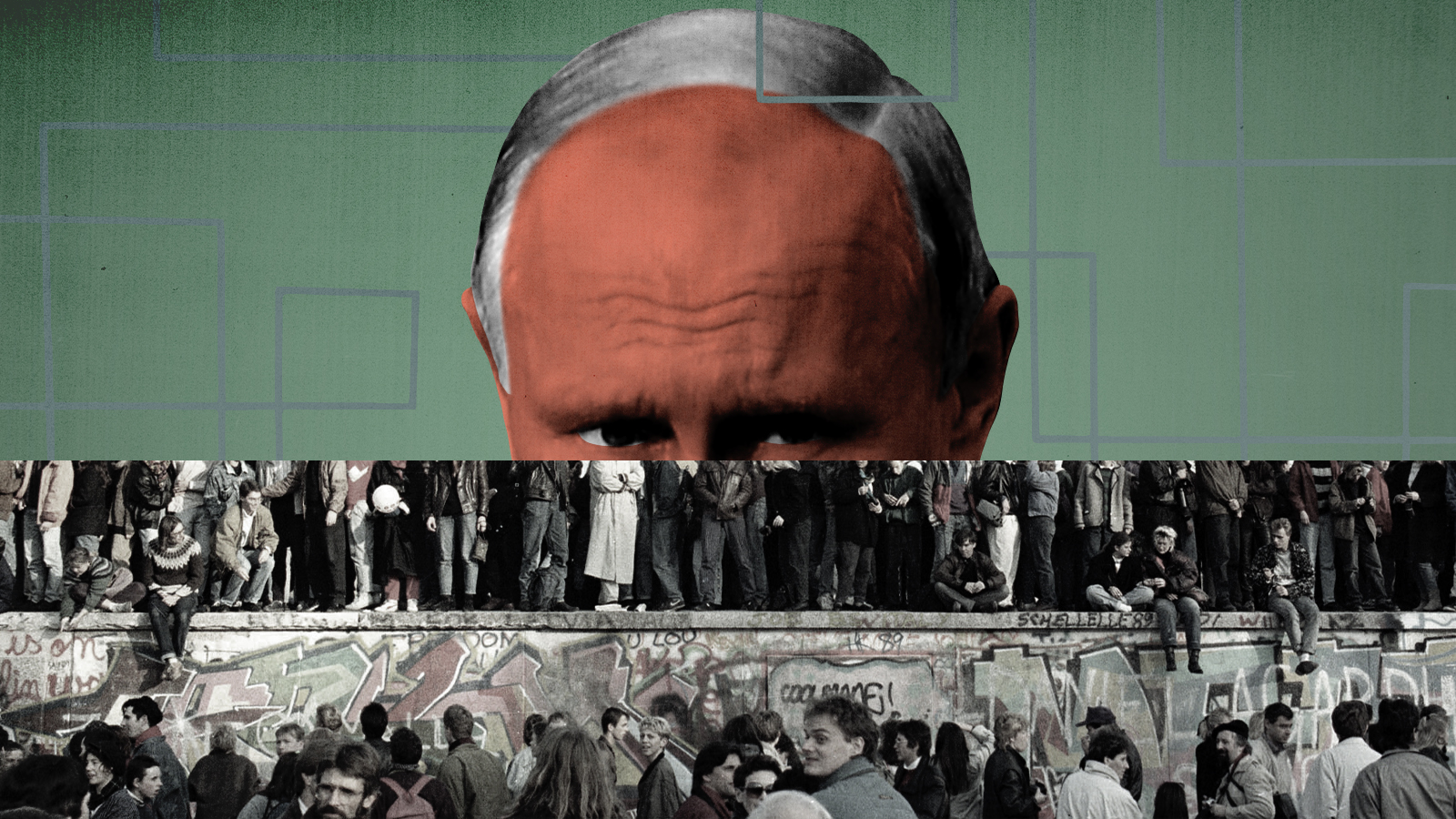
As Russia continues preparations to seemingly launch an invasion of neighboring Ukraine, President Biden's lack of tenable policy options is no accident. The crisis is 30 years in the making, with its roots not just in the gradual post-Cold War expansion of NATO to the Russian border, but in unresolved issues stemming from Ukraine's independence from the Soviet Union.
When the Soviet Union collapsed between 1988 and 1991, the constituent national republics of the USSR declared independence with their existing administrative boundaries intact, including Ukraine. Specifically, Boris Yeltsin, the Russian president, capriciously dissolved the Soviet Union at a hunting retreat with Ukrainian President Leonid Kravchuk and Belarusian leader Stanislav Shushkevich on December 8th, 1991, a gathering rumored to be fueled by the Russian leader's notorious fondness for drinking to excess.
Elites of the other Soviet Socialist Republicans (SSR) sensed the irresistible opportunity to become world leaders rather than obscure, subnational figureheads, and acted accordingly. Many were profoundly unprepared for independence. More problematically, these new countries walked away with millions of ethnic Russians who suddenly found themselves on the wrong side of brand-new international frontiers.
The Week
Escape your echo chamber. Get the facts behind the news, plus analysis from multiple perspectives.

Sign up for The Week's Free Newsletters
From our morning news briefing to a weekly Good News Newsletter, get the best of The Week delivered directly to your inbox.
From our morning news briefing to a weekly Good News Newsletter, get the best of The Week delivered directly to your inbox.
While it is no more unjust in theory for Russians to live as minorities in Latvia than for Latvians to live as minorities in the USSR, the reality is that the creation of these new states has long been viewed in Russia as an injustice imposed by the West at the country's moment of maximum weakness, when the central government in Moscow had lost control of the country. In those heady days, a triumphant United States was only too happy to help finalize the collapse of its Cold War rival, and in Yeltsin, President Bill Clinton found a pliant counterpart whose inept rush to privatize Russian industries and resources led to a staggering economic catastrophe that lasted until the end of the millennium.
The early 1990s saw hyperinflation and a collapse in GDP that by some estimates eclipsed the contraction of the U.S. economy during the Great Depression. In the 10 years between 1991 and 2001, there were 5 million excess adult deaths in Russia alone. Most post-Soviet countries experienced similar hardship, including Ukraine. Everyday life was difficult for many people undergoing this abrupt transition.
Ukraine actually posed the most acute problem of all the post-Soviet states, not just because of substantial Russian populations in the country's eastern provinces but also because on the day of its independence, it became the world's third-largest nuclear power with some 1,900 weapons theoretically (although not operationally) at the disposal of Kravchuk's new government in Kyiv. Policymakers determined that ridding the world of another nuclear state was more important than a durable settlement between Ukraine and the new Russian successor state to the Soviet Union. The George H.W. Bush and subsequent Clinton administrations were committed to non-proliferation and believed that allowing one of the successor states to join the world's exclusive nuclear club would set a terrible precedent.
Ironically, it was Yeltsin himself, by acquiescing to the peaceful and swift breakup of the Soviet Union, who did more than anyone else to ensure that the SSRs would emerge on the world stage with their boundaries intact. This approach might have made sense in countries that lacked substantial Russian populations, like Tajikistan and Georgia, but a one-size-fits-all strategy was a poor fit for Ukraine, whose demographic makeup was a powder keg from the get-go. Once the revanchist Vladimir Putin entrenched himself in Moscow, the specter of a long campaign of irredentist subterfuge and violence became a reality.
A free daily email with the biggest news stories of the day – and the best features from TheWeek.com
Perhaps Ukraine could be on firmer footing today, had the country not agreed to unilateral disarmament. In 1994, Kyiv agreed to relinquish its nukes in exchange for economic assistance from the U.S. and an agreement with Russia and the United States to respect Ukraine's borders. It is telling that this agreement was called the Budapest Memorandum, and not the Treaty of Budapest, and that the U.S. provided Ukraine with security "assurances" and not security "guarantees." Over the past decade, Russia has wantonly violated the memorandum, first with its illegal annexation of Russian-majority Crimea in 2014, and then with its support for insurgents in the east.
In retrospect, depriving Ukraine of its nuclear weapons was almost certainly a terrible mistake. Without nuclear weapons, Ukraine is objectively a much weaker state than Russia, and the security guarantees of Yeltsin's Russia turned out to be worthless when his government was replaced by hardliners just a few years later. Of all the post-Soviet states, Ukraine is the one with the most territory that Moscow would like to reclaim, not just because of its large Russian population but also because, unlike Belarus, many Ukrainian elites want to reorient toward the West and away from Russia. And Putin knows perfectly well that if NATO won't defend Ukraine with military force, he is free to grab as much territory as he likes.
American policymakers have not helped matters by sending mixed signals about their level of commitment to Ukrainian sovereignty. Part of that ambiguity was precisely to avoid provoking Russia, which happened anyway. Instead, the U.S. needs to draw a clear perimeter around countries it is willing to defend with force, including taking on the risk of nuclear war, and those that are mostly on their own. A lack of clarity about U.S. commitments helps no one, and sometimes leads allies to act recklessly in the belief that they are under U.S. protection when they are not, as happened with Georgia in 2008.
Would things be different had Ukraine joined NATO years ago? We'll never know. Perhaps Russia would have been forced to accept it as a fait accompli knowing that Ukraine would enjoy the full protection of the world's most fearsome military alliance. Or perhaps Putin would have launched an invasion before the accession process was complete, with NATO membership triggering the very war it was designed to avert. Counterfactuals are fun, but they are ultimately just a thought exercise.
What we do know is that Putin regards the eastward march of NATO as a betrayal of promises made by U.S. leaders as the Soviet Union was dissolving. Even though the U.S. never made a firm promise not to expand NATO, and the Baltic states certainly have no regrets about it, perceptions matter as much as reality in international politics. And there is no question that Putin thinks he is in the process of righting a series of historical wrongs.
This history leaves the Biden Administration with few tenable options to resolve this crisis peacefully. The past is the past, but a resolution requires an understanding not just of today's realities, but of how both countries believe they got to this point. And so long as Putin is in power in Moscow, the countries in his sights would best be served by a realistic appraisal of the limitations of American power to protect them, none more so than Ukraine.
That doesn't mean a callous dismissal of the suffering of Ukrainians, but it also doesn't mean giving them false hope about what the U.S. is willing to sacrifice on their behalf.
David Faris is a professor of political science at Roosevelt University and the author of "It's Time to Fight Dirty: How Democrats Can Build a Lasting Majority in American Politics." He's a frequent contributor to Newsweek and Slate, and his work has appeared in The Washington Post, The New Republic and The Nation, among others.
-
 Ultimate pasta alla Norma
Ultimate pasta alla NormaThe Week Recommends White miso and eggplant enrich the flavour of this classic pasta dish
-
 Death in Minneapolis: a shooting dividing the US
Death in Minneapolis: a shooting dividing the USIn the Spotlight Federal response to Renee Good’s shooting suggest priority is ‘vilifying Trump’s perceived enemies rather than informing the public’
-
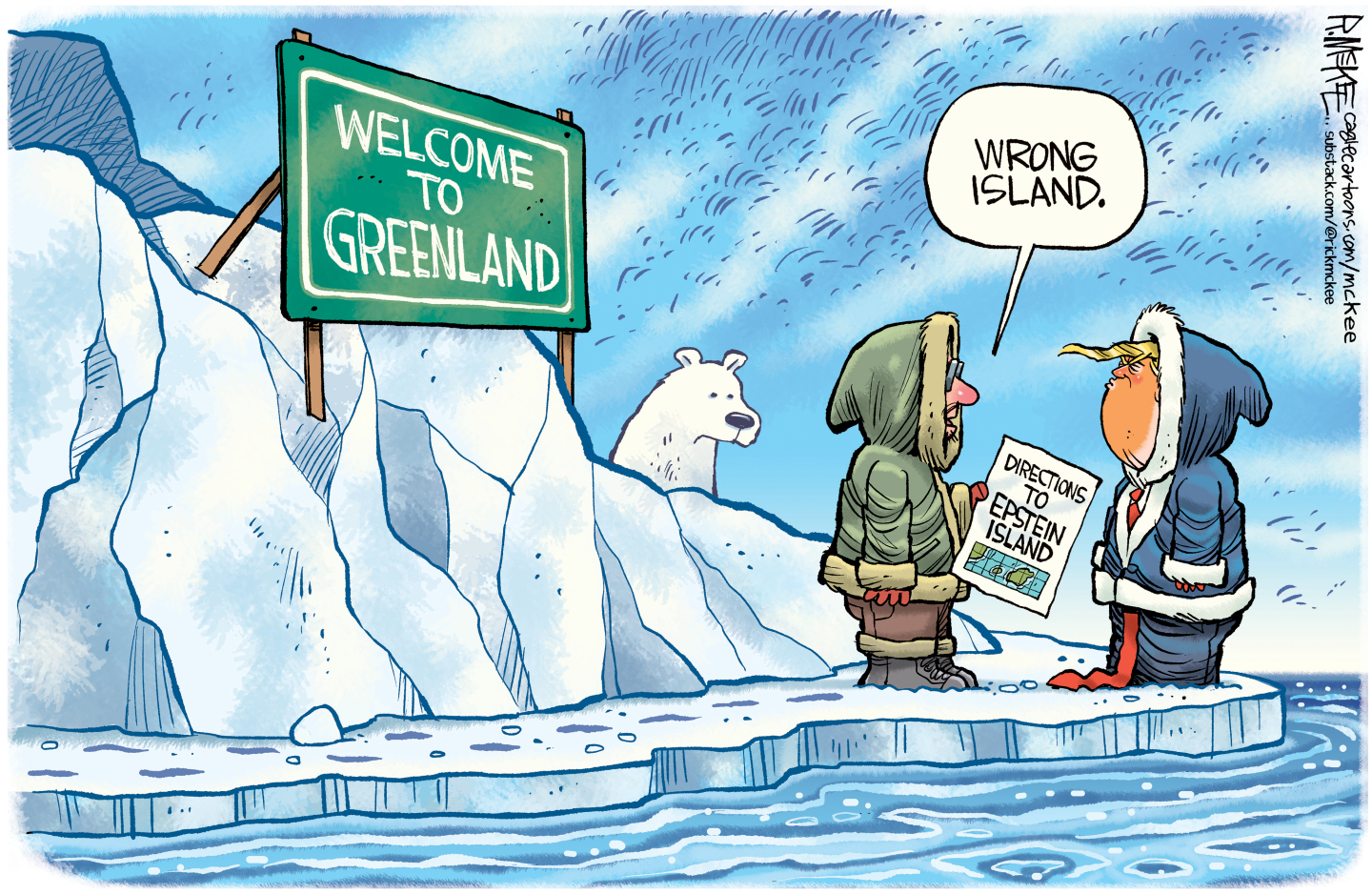 5 hilariously chilling cartoons about Trump’s plan to invade Greenland
5 hilariously chilling cartoons about Trump’s plan to invade GreenlandCartoons Artists take on misdirection, the need for Greenland, and more
-
 Why Greenland’s natural resources are nearly impossible to mine
Why Greenland’s natural resources are nearly impossible to mineThe Explainer The country’s natural landscape makes the task extremely difficult
-
 Iran cuts internet as protests escalate
Iran cuts internet as protests escalateSpeed Reada Government buildings across the country have been set on fire
-
 US nabs ‘shadow’ tanker claimed by Russia
US nabs ‘shadow’ tanker claimed by RussiaSpeed Read The ship was one of two vessels seized by the US military
-
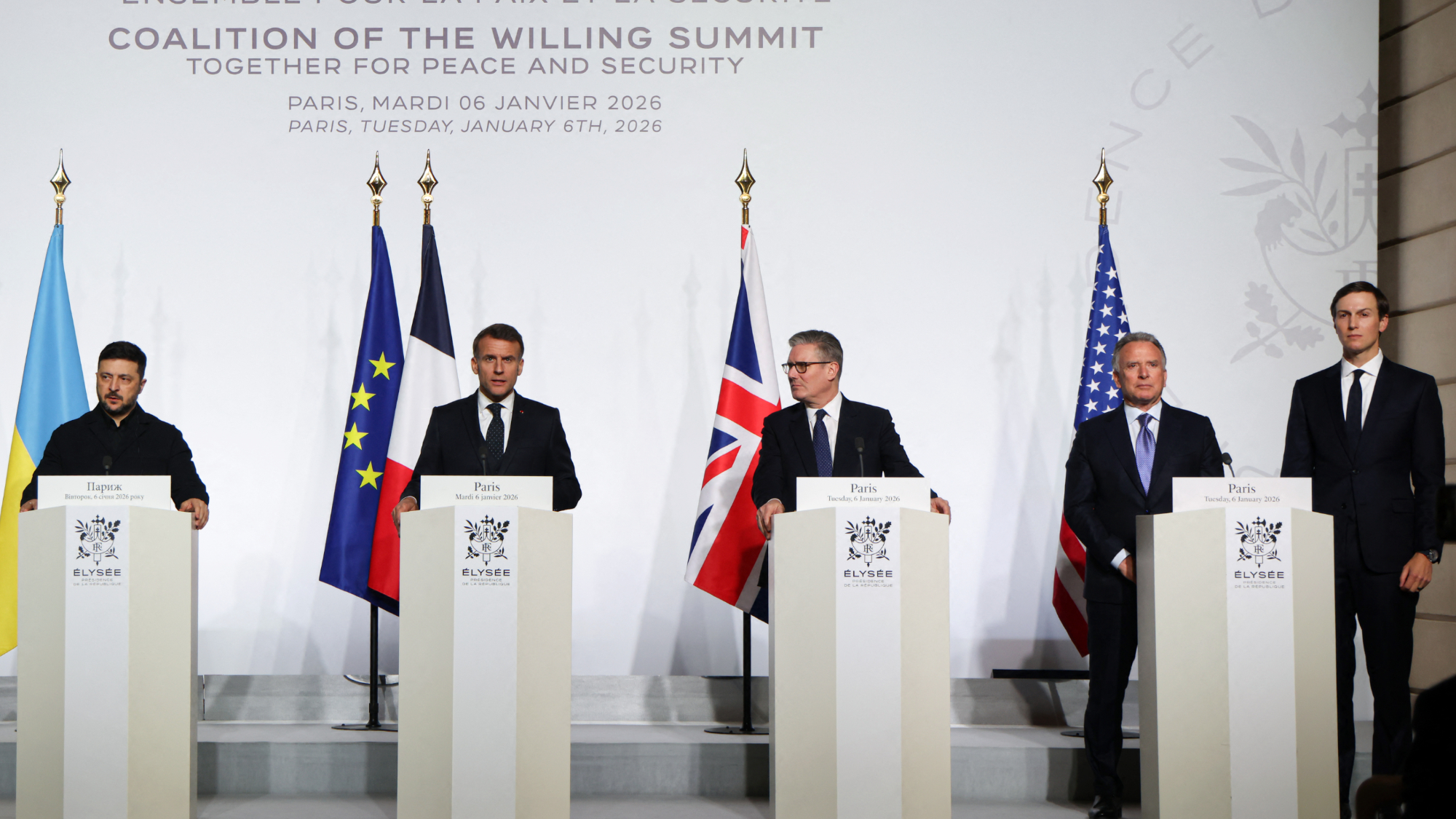 Trump’s Greenland threats overshadow Ukraine talks
Trump’s Greenland threats overshadow Ukraine talksSpeed Read The Danish prime minister said Trump’s threats should be taken seriously
-
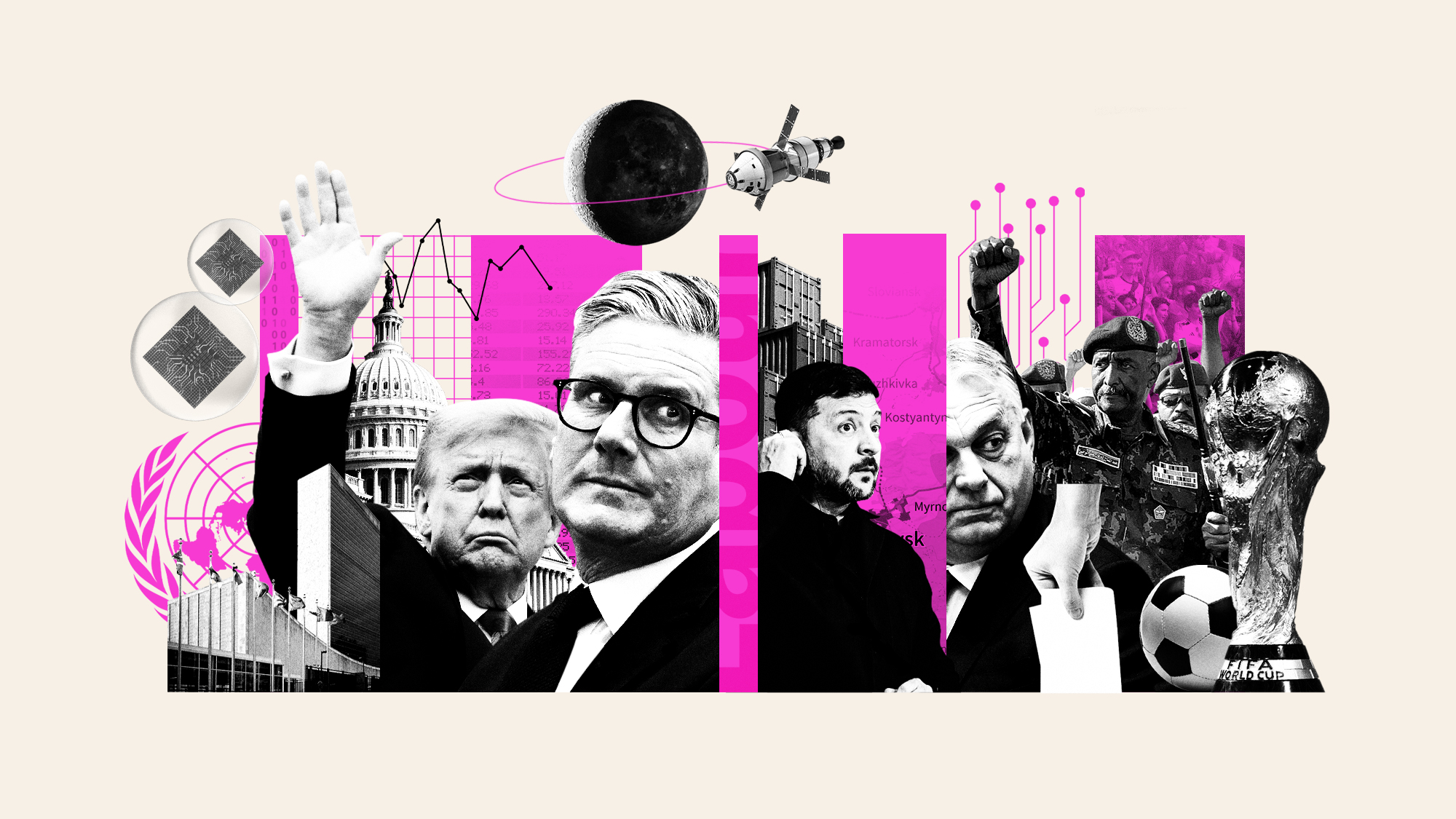 What will happen in 2026? Predictions and events
What will happen in 2026? Predictions and eventsIn Depth The new year could bring peace in Ukraine or war in Venezuela, as Donald Trump prepares to host a highly politicised World Cup and Nasa returns to the Moon
-
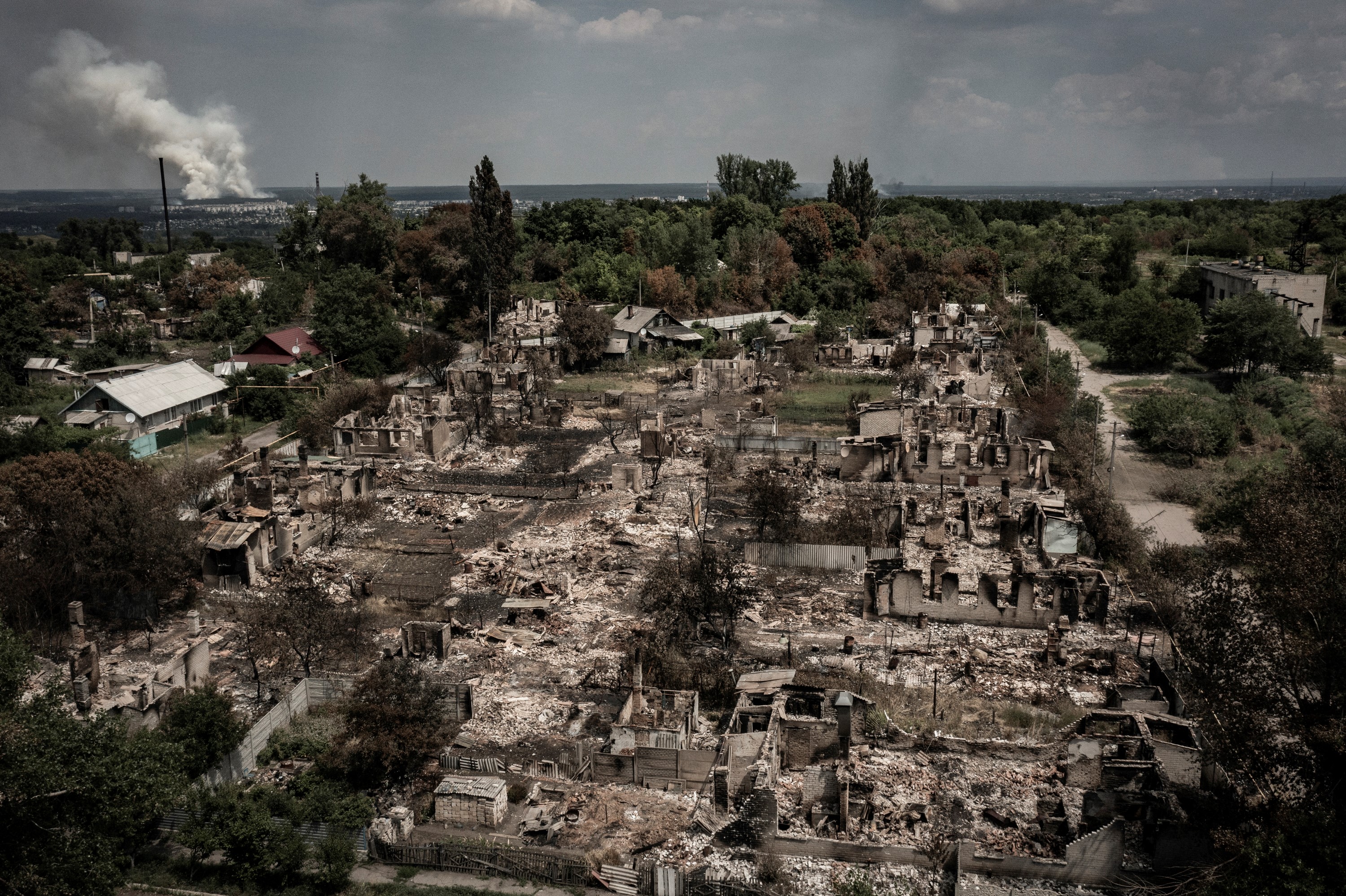 All roads to Ukraine-Russia peace run through the Donbas
All roads to Ukraine-Russia peace run through the DonbasIN THE SPOTLIGHT Volodymyr Zelenskyy is floating a major concession on one of the thorniest issues in the complex negotiations between Ukraine and Russia
-
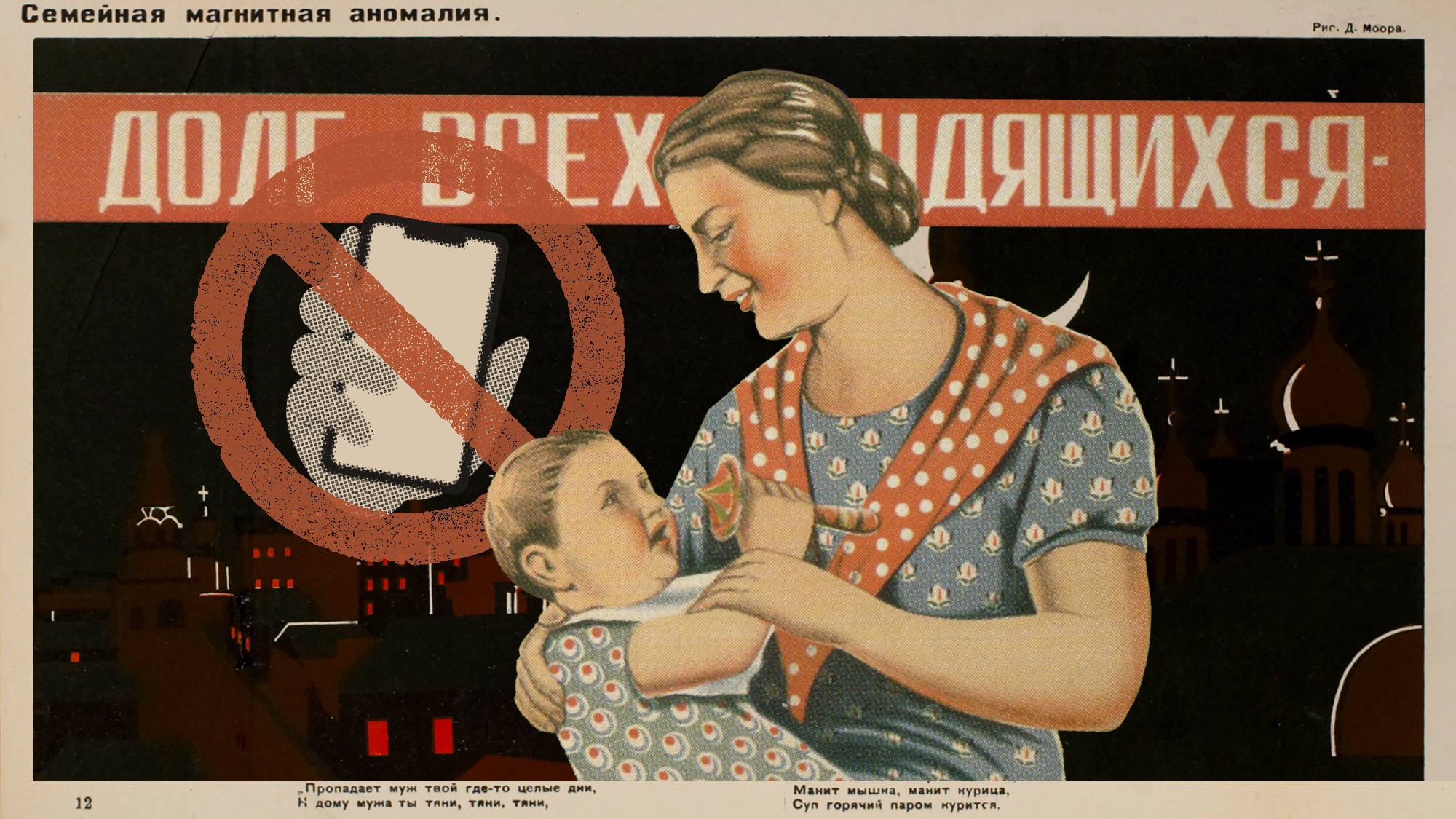 Russia’s ‘weird’ campaign to boost its birth rate
Russia’s ‘weird’ campaign to boost its birth rateUnder the Radar Demographic crisis spurs lawmakers to take increasingly desperate measures
-
 US offers Ukraine NATO-like security pact, with caveats
US offers Ukraine NATO-like security pact, with caveatsSpeed Read The Trump administration has offered Ukraine security guarantees similar to those it would receive from NATO
